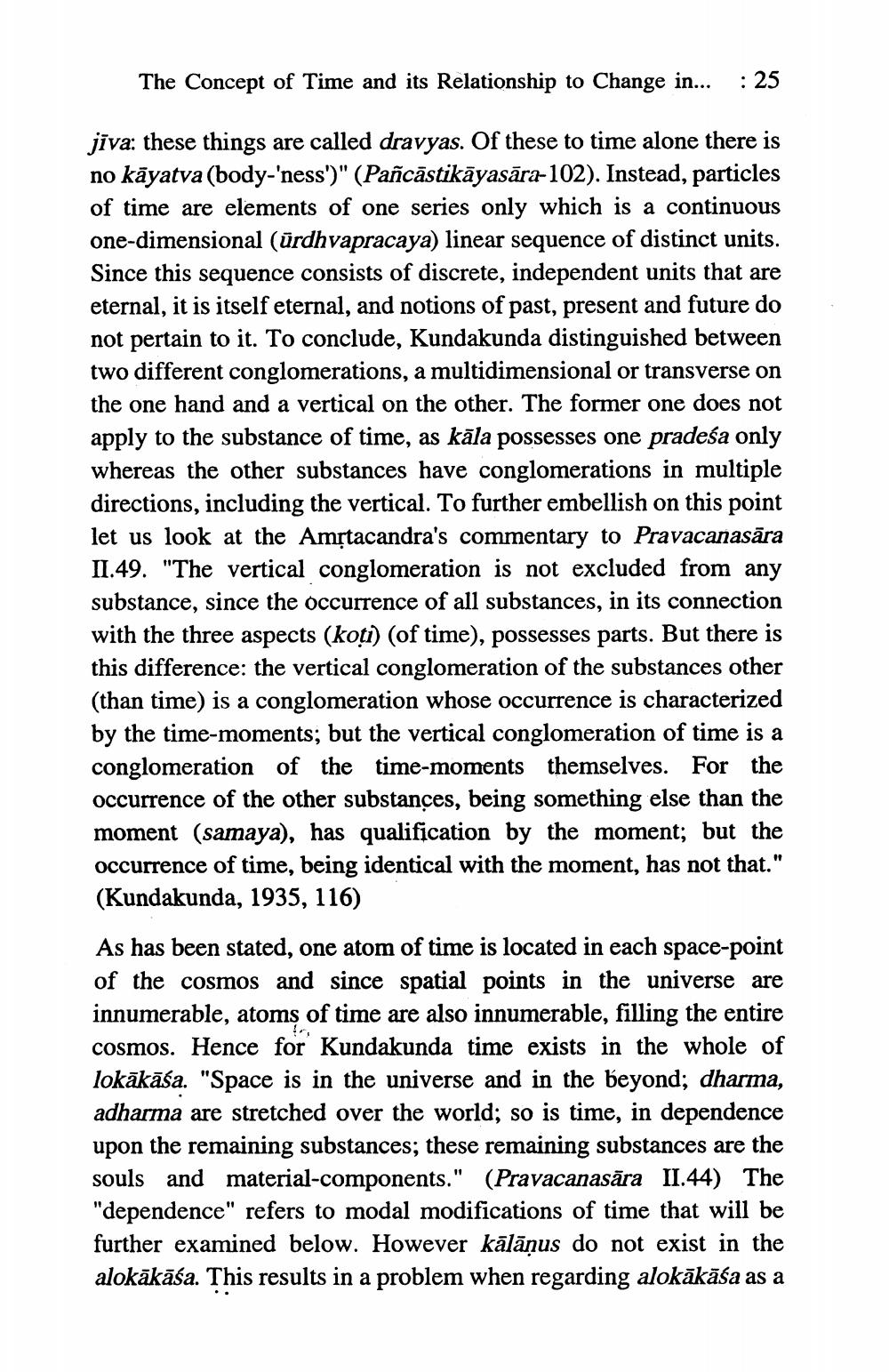________________
The Concept of Time and its Relationship to Change in... : 25
jīva: these things are called dravyas. Of these to time alone there is no kāyatva (body-'ness')" (Pañcāstikāyasāra-102). Instead, particles of time are elements of one series only which is a continuous one-dimensional (ūrdhvapracaya) linear sequence of distinct units. Since this sequence consists of discrete, independent units that are eternal, it is itself eternal, and notions of past, present and future do not pertain to it. To conclude, Kundakunda distinguished between two different conglomerations, a multidimensional or transverse on the one hand and a vertical on the other. The former one does not apply to the substance of time, as kāla possesses one pradeśa only whereas the other substances have conglomerations in multiple directions, including the vertical. To further embellish on this point let us look at the Amộtacandra's commentary to Pravacanasāra II.49. "The vertical conglomeration is not excluded from any substance, since the occurrence of all substances, in its connection with the three aspects (koti) (of time), possesses parts. But there is this difference: the vertical conglomeration of the substances other (than time) is a conglomeration whose occurrence is characterized by the time-moments; but the vertical conglomeration of time is a conglomeration of the time-moments themselves. For the occurrence of the other substances, being something else than the moment (samaya), has qualification by the moment; but the occurrence of time, being identical with the moment, has not that." (Kundakunda, 1935, 116)
As has been stated, one atom of time is located in each space-point of the cosmos and since spatial points in the universe are innumerable, atoms of time are also innumerable, filling the entire cosmos. Hence for Kundakunda time exists in the whole of lokākāśa. "Space is in the universe and in the beyond; dharma, adharma are stretched over the world; so is time, in dependence upon the remaining substances; these remaining substances are the souls and material-components." (Pravacanasāra II.44) The "dependence" refers to modal modifications of time that will be further examined below. However kālāņus do not exist in the alokākāśa. This results in a problem when regarding alokākāśa as a




